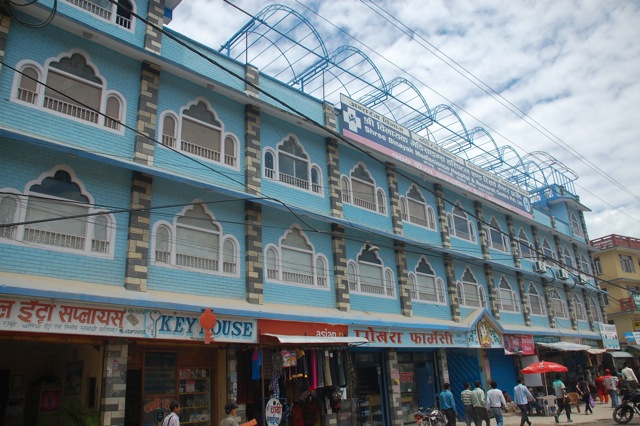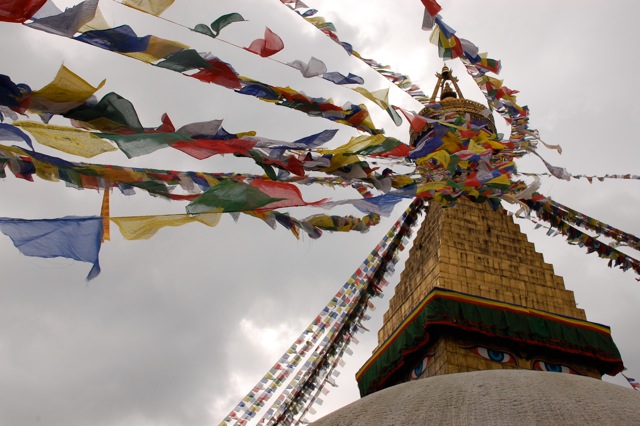Students in Field Experience
UC San Diego Global Health students travel the globe or stay close to home to complete thier field experience.
Domestic Field Experience
San Diego Based Experiences
San Diego Prevention Research Center Familias Sanas y Activas
Geleen Antonio 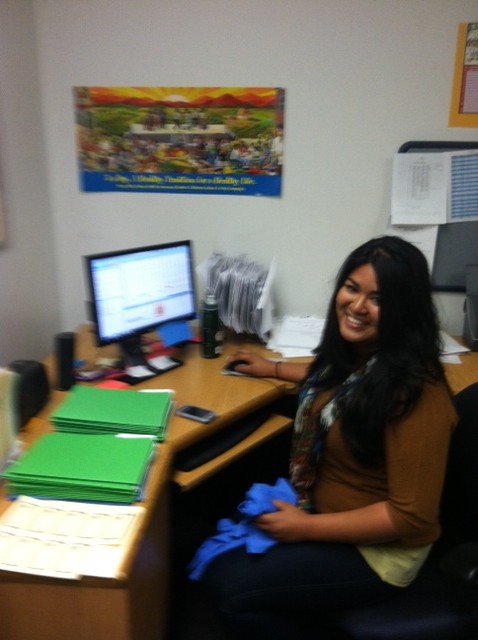
Geleen Antonio is a Physiology and Neuroscience (’12) major. She began as a pre-med student but realized wanted to do more in terms of helping a bigger population vs individual patient care. Thus began her global health minor. After graduating this June, she hopes to get a fellowship in public health for the CDC.
For her project, she worked in Kearney Mesa for 1.5 years (but there is no limit, but must work at least 6 hours a week). The organization is San Diego Prevention Research Center Familias Sanas y Activas. This program aims to decrease obesity risk in the Latino communities of the South San Diego region through physical activity. It does so by providing free exercise and healthy lifestyle classes to the community.
Find out about the organization here! (www.sdprc.org & www.ibachsd.org)
Geleen shares her experience:
I worked with the project manager and I began doing evaluation. My typical routine would be to go to the office and communicate with the project manager about what the priorities were for the day. I did a lot of work in the office, setting up files, creating protocols, creating documents for use in the field and for marketing purposes, research on pub med, etc. I also began working in the field helping with measurement events and administering surveys and consent forms to participants. I helped host health fairs and helped them recruit more participants. I called those that spoke English and reminded them of their appointments. I was able to gain skills in working with SPSS, ACCESS, Accelerometer programs, Excel, and Publisher. I also published an article in El Latino newspaper
One of the greatest challenges I had was not being able to speak Spanish. I was still helpful in translations because I had taken Spanish courses and I used Google Translator/asked for help when I could not understand a particular word/phrase. I think that the environment was very important. I currently work for the SDPRC and I feel that everyone who works there really wants to help you succeed. They have written me many recommendations and have been my reference for many jobs I've applied to.
In my free time I spoke with the other interns about their career prospects or I spoke with the project managers and asked them for advice.
Outside of the project, I am writing a research proposal on how to apply SDPRC's FSA model for the Filipino American community in San Diego for my class (TWS 198).
What she has to say about her program “Great internship with possibility of a paid position. Everyone is very caring and willing to give career advice. The PI's are very accessible as well.”
California Field Experiences
Iris Cantor UCLA Women’s Health Education and Resource Center (WHERC)
Amy Huynh
Amy Huynh is a Human Development major (’14) at ERC. Amy chose to minor in Global Health to gain perspective on “human health and its connection to the global community.”
For her field experience, Amy spent 10 weeks at the Iris Cantor UCLA Women’s Health Education and Resource Center (WHERC).
Amy shares her experience:
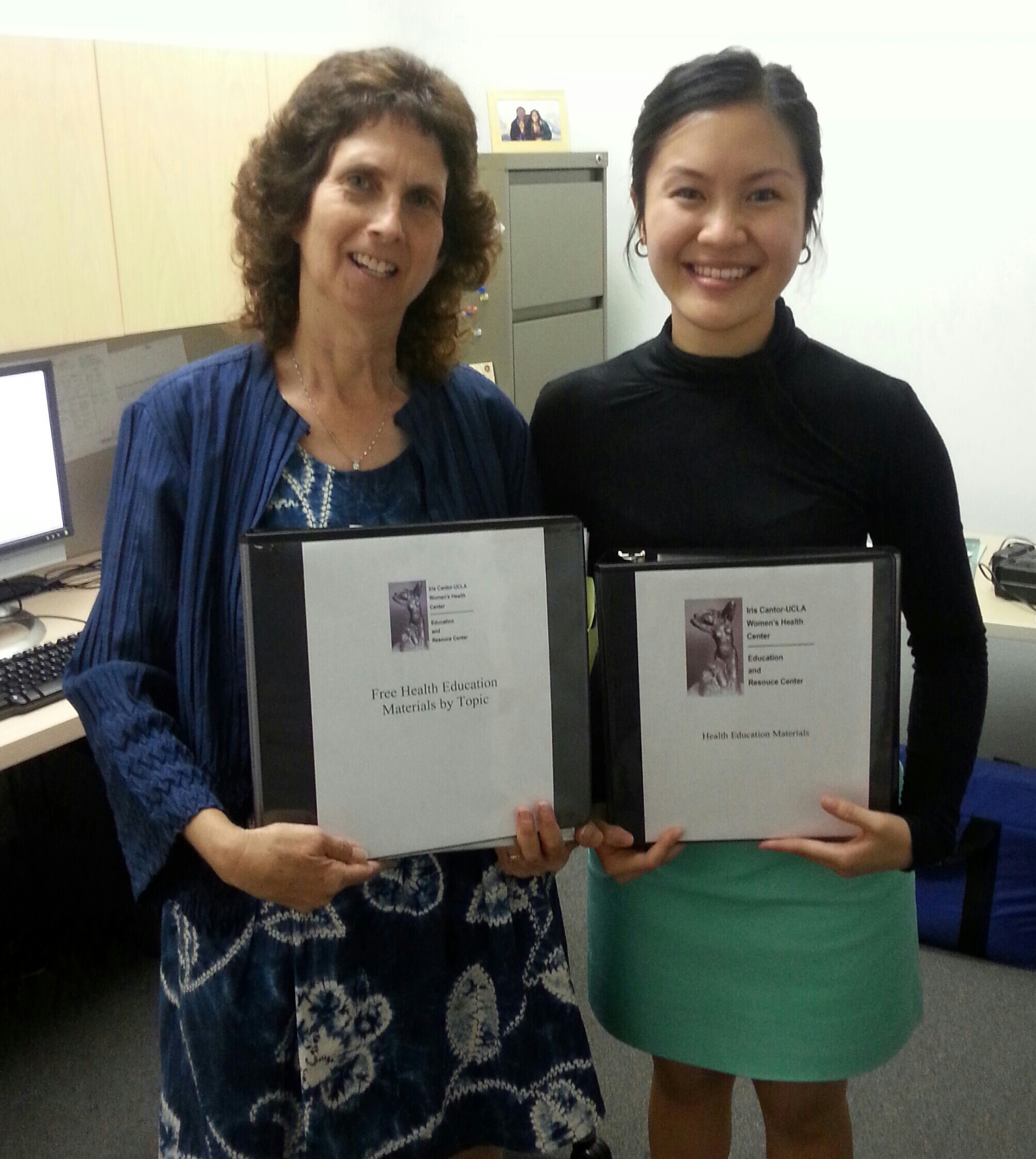
“My field experience at UCLA Women's Health Education and Resource Center was a great learning experience and helped me see the workings of public health. I worked closely with the Director of UCLA WHERC on a new project called the UCLA Healthy Campus Initiative. This project is in the beginning stages and serves to provide low-wage employees at UCLA with health resources that are conducive to overall good health. I was in charge of collecting, consolidating, and organizing health education materials from non-profit organizations, government agencies, and local health entities. I also assisted in organizing and reading scientific articles for lesbian and bisexual women's health research conducted by the medical director of the center and other researchers.”
“I am grateful that I was able to do complete my field experience at this institution because I gained insights on health issues experienced by a population that I never really thought about. I learned about the health concerns that are unique to lesbian and bisexual women and how they are at a disadvantage when it comes to access to quality health care. Even though I have taken numerous courses relevant to public/global health, I have not learned about this sexual minority population. I am interested in women's health, so this internship definitely exposed me to new information that relates to my future profession.”
Domestic Experiences
National Institute of Drug Abuse (NIDA) @ Yale University
Nicolette Kalic
Nicolette Kalic is a Communications major (’12) who will be working for Abott Dermatology post-graduation, and plans to save up for graduate school in the next couple of years. She has a passion for learning and hope that her experience at UCSD is just the beginning of her studies, travels, and experiences in the field of global public health!
For her project, Nicolette spent 3 months at Yale University with the National Institute of Drug Abuse (NIDA).
Here’s what she has to say about her experience:
“I participated at Yale University's School of Public Health’s R01 study SHARRPP (Structures, Health and Risk among Re-Entrants, Probationers and Partners) over the summer under a scholarship. SHARRPP is a federally funded study that analyzes connections between the criminal justice system and the community and race disparities in HIV-related sexual risk. This study builds on the research methodology and findings produced in a related project that was conducted between 2005 and 2007 at Yale University as well.
I lived in the dorms at Yale University, and walked to the Yale Medical Center Monday through Friday, working from 9am to 5pm. I attended meetings with the School of Public Health staff to update members on how the study progressed. I also scheduled appointments with participants over the phone for a survey that I also took part in editing and finalizing. I was also responsible for coding interviews conducting in a previous study, looking specifically at trauma in the lives of these participants. I attended meetings across the city with my Project Investigator, outreaching to potential participants in different communities.
Aside from the challenge of walking 8 blocks to and from work in East Coast stormy, humid weather, a more serious challenge was being able to allow participants, many of whom were recently released from prison or shelter, to feel comfortable in our office, and to relate to them on the phone during interviews It was emotionally challenging to hear some of their life stories, and how they have had overcome serious obstacles such as family losses, drug addictions, repetitive arrests, etc.
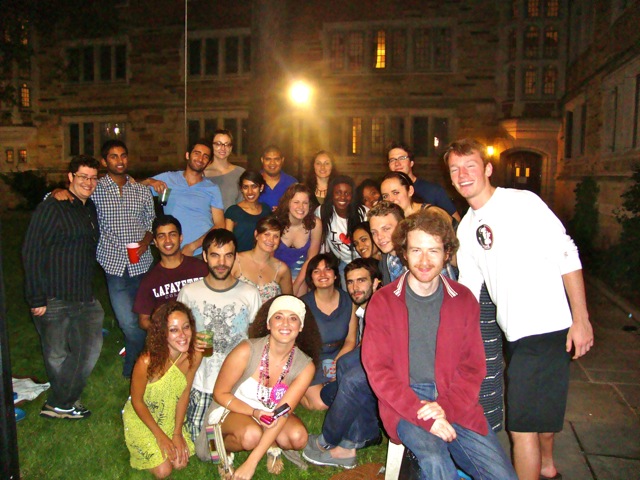
I met some of the most incredible people during the summer at Yale. I witnessed first-hand how R01, an important nationally funded study is organized and set up. The valuable skills I gained from R01 have helped me step up to advance in my job. Memories to last a lifetime, friendships I have made from all around the world, and now a yearning passion to one day return to Yale School of Public health for Graduate School.
During my free time, my project investigator gave me tours around New Haven, and we attended community meetings and different shelters. We visited the courthouse, and I was able to see how the judicial system works. I also spent a lot of time touring the beautiful campus and with friends I acquired while living in the dorms.
International Field Experience
Africa
Tanzania, Africa (One Heart Source)
Virpal Kaur - Tanzania, Africa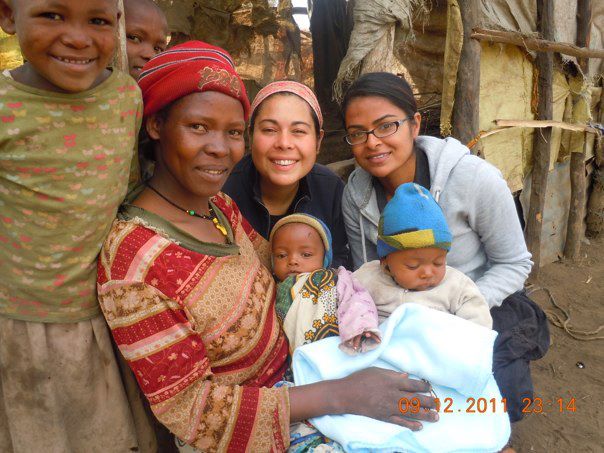
Virpal Kaur is majoring in General Biology (’13). She is a third year ERC student. She loves traveling abroad and volunteering in different communities to learn more about different cultures. For her field experience, Virpal traveled to Tanzania, Africa for a month an organization called “One Heart Source”. One Heart Source promotes well-being, growth and development of abandoned and orphaned children in underdeveloped countries through high quality care and education programs. It also uses education to promote academic enrichment, life skills, and character development of the children to build effective lives and become potential community leaders, continuing the cycle of positive social change.
Here’s Virpal sharing her experience:
“I lived with a host family in a village named Musa in Tanzania. I worked with American volunteers and Tanzanian volunteers. I got the chance to teach the community about health related topics. I also worked with children at the local school. I got to tutor them in Subjects like English and History. I also helped in beautification of the school. For example, we build benches and placed them all around the school to provide students with a place where they can actually sit and socialize during breaks. Most importantly, I learned about their cultural by eating every meal with the family I was assigned.
The main challenge was the language barrier. Due to finals one week before the trip, I was not able to learn as much Swahili as I should have. So, it was really hard to talk to the family members in the beginning. However, as the days passed, I was able to learn a lot and was able to have simple conversations with my family members. I brought back tons of memories. I made so many new friends and I still have daily contact with them. However, one of the most important thing that I brought back was what I learned. I learned to appreciate what we have, a lot more. This trip changed the way I looked at so many things and I think it is something that will be with me for the rest of my life.
During the free time, we would usually go to the Duka (small store) to buy some soda and snacks. We would play soccer with the kids in the village, cook with our families or just for walks around the village.
I try and work with kids a lot more now because that was one thing I loved the most about this trip. So, I try and go to the orphanage trips or just tutor kids near my community.”
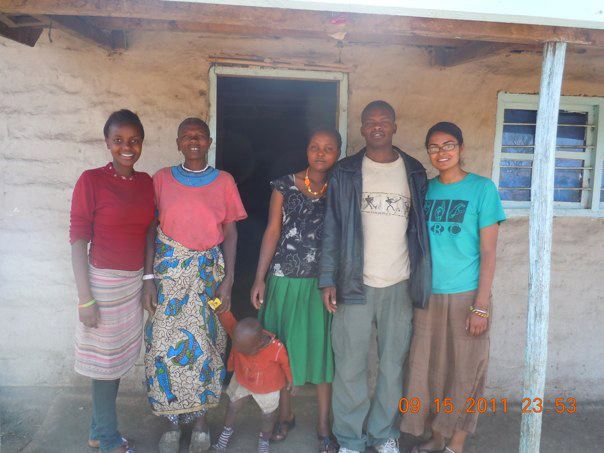
Kenya, Africa (Projects Abroad)
Cindi Chen, a recent UCSD Gradaute (Class of 2014) ,Physiology & Neuroscience and Global Health Minor, completed her Field Work Experience through Program's Aborad at St. Anthony's Health Centre in Kenya. Projects Abroad helps place volunteers in a variety of projects in developing countries. Some projects include care, teaching, medical and conservation. http://www.projects-abroad.org/
Cindi is a San Franciscan Nativeand has a passion for good food, travelling and social justice.
I was a medical volunteer and was placed in St. Anthony's Health Centre, a small private hospital that is located in the outskirts of Nakuru, Kenya. I rotated between the different departments and usually shadowed/aided the nurses. I helped the nurse in the infant room, where vaccinations and the weight and height of the baby were determined. I also helped in the treatment room, where the nurses treated patients for everything from burns and cuts to injections and checkup on mothers who are pregnant. The nurses would explain what they were doing and how the treatments worked for diseases such as malaria, tuberculosis and typhoid fever. For observing the mother and fetus, the nurses would show us the technique for estimating the growth and development of the fetus and its health (since ultrasounds are expensive). During night shifts, there would be one nurse on duty and we would help her when she delivers babies and any patients who come at night. On certain days, the medical volunteer coordinator would bring the volunteers (who are also medical volunteers but in different placements) to help in free clinics in the slums of Nakuru or to volunteer with the Red Cross in the larger public hospital, where people are able to get treatment for free.
What were some challenges that you faced:
Some challenges that I faced were very much due to cultural differences. Most of the host families are relatively well off and hire cheap live-in help (they are paid approximately 100 KSh/ 1 USD a day with free room and board), which I was not used to, especially because she was the same age as me! There were also certain views that I did not agree on, but was stumped on how to tell them that I did not agree with it, such as on homosexuality (acts of homosexuality are illegal in Kenya and can lead to imprisonment if discovered and many Kenyans are strongly against it) and sometimes the treatment of the live-in help. I would talk to the volunteers I was living with and the program coordinators about situations which I was not completely comfortable about.
What did you do during your free time?
I had free time on the weekends, when I would travel to different parts of Kenya with volunteers who were staying with the same host family. We went to Mombasa, Masai Mara (safari), and other parks.
Valuable Lessons from Field Experience:
The field experience was an eye-opening experience, one that allowed me to bring back valuable lessons, memories and friendships. It tested my abilities to adapt to a different culture and emphasized the importance of keeping an open mind. I was also able to make friends with other volunteers from all over the world and with local Kenyans who I know would welcome me back whenever I decide to visit again.
How has your field experience been relevant at UCSD?
I will be a Master's student in Fall 2014 and will be applying for medical school in 2015. The field experience has given me a chance to observe how medicine is practiced in a developing country and how limited
resources often limit the ability for healthcare professionals to give treatment and for patients to seek treatment. It has confirmed to me that my career goals would be to work with underserved populations
.
Koforidua, Ghana
Dana Yi - Medical Internship in Koforidua, Ghana
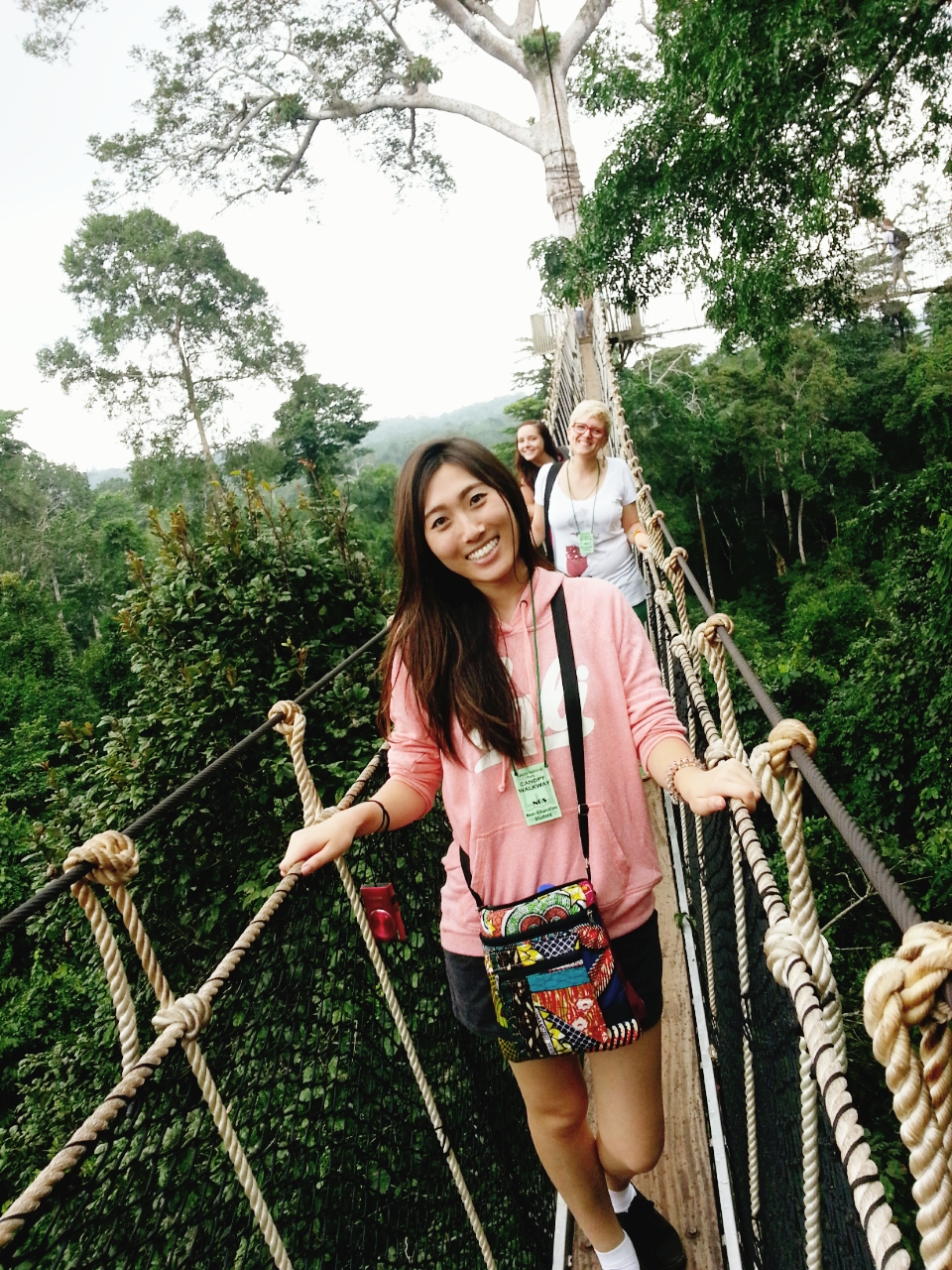
Dana, a Global Health Minor shares her experience Studying Abroad in Ghana:
For five weeks in Koforidua, Ghana, I was able to volunteer in a hospital and participate in various medical outreaches that would allow me to see medical treatment in a different country other than the US. During June 30 to August 1, I volunteered at the labor ward and kids’ ward in the Eastern Regional Hospital. While the Eastern Regional Hospital had plenty of staff and many were well educated with their jobs, lack of supplies showed a difference in care present in the US that was not present in the Eastern Regional Hospital. In the labor ward, I was able to see that sanitation was not heavily emphasized as in the US. I did not have to sanitize myself and could view surgeries up close. Many instruments were sometimes just dunked in a bucket full of antiseptic and used on the next patient. Also, natural births were very common and epidurals were not used. This involved a lot of screaming on the mother’s part. Families of the patients were not allowed to be with them and if the patient was too loud, a nurse would give her a good slap on the leg to shush her. This difference was very startling to me, but I remember being very tearful and touched witnessing the live birth of a little, baby boy. It was a magical moment!
As for the kids’ ward, I was able to shadow doctors on their daily rounds. Many of the patients suffered from maladies that are not common to the US. Patients suffered from malaria, anemia commonly due to malaria, sepsis, malnutrition, and HIV infections. It was interesting to see that many suffered from malaria, something I had never seen before. It was a good reminder to take my malaria pill everyday, use mosquito repellent, and a mosquito net on my bed! However, some mothers had lack of knowledge on prevention and could be seen coming repeatedly to the hospital with children that acquired malaria again and again.
In addition to volunteering at the hospital, I was able to go on medical outreaches to villages and perform first aid and even take blood pressures. While those who lived near the hospital had easy access to professional care, those who lived in rural areas had difficulty getting transportation to a hospital. Because of distance and costs, many people let wounds fester. I was able to perform small first aid on cuts and scrapes on the children, but could not help much with children that had let their wounds get to the point of infection. One little girl had a foot so badly infected, it was feared that it would have to be amputated and we stressed that she be taken to a hospital for better care. These cases often showed me that sometimes people did not know proper cleaning of wounds and we often had to teach the children proper hand washing.
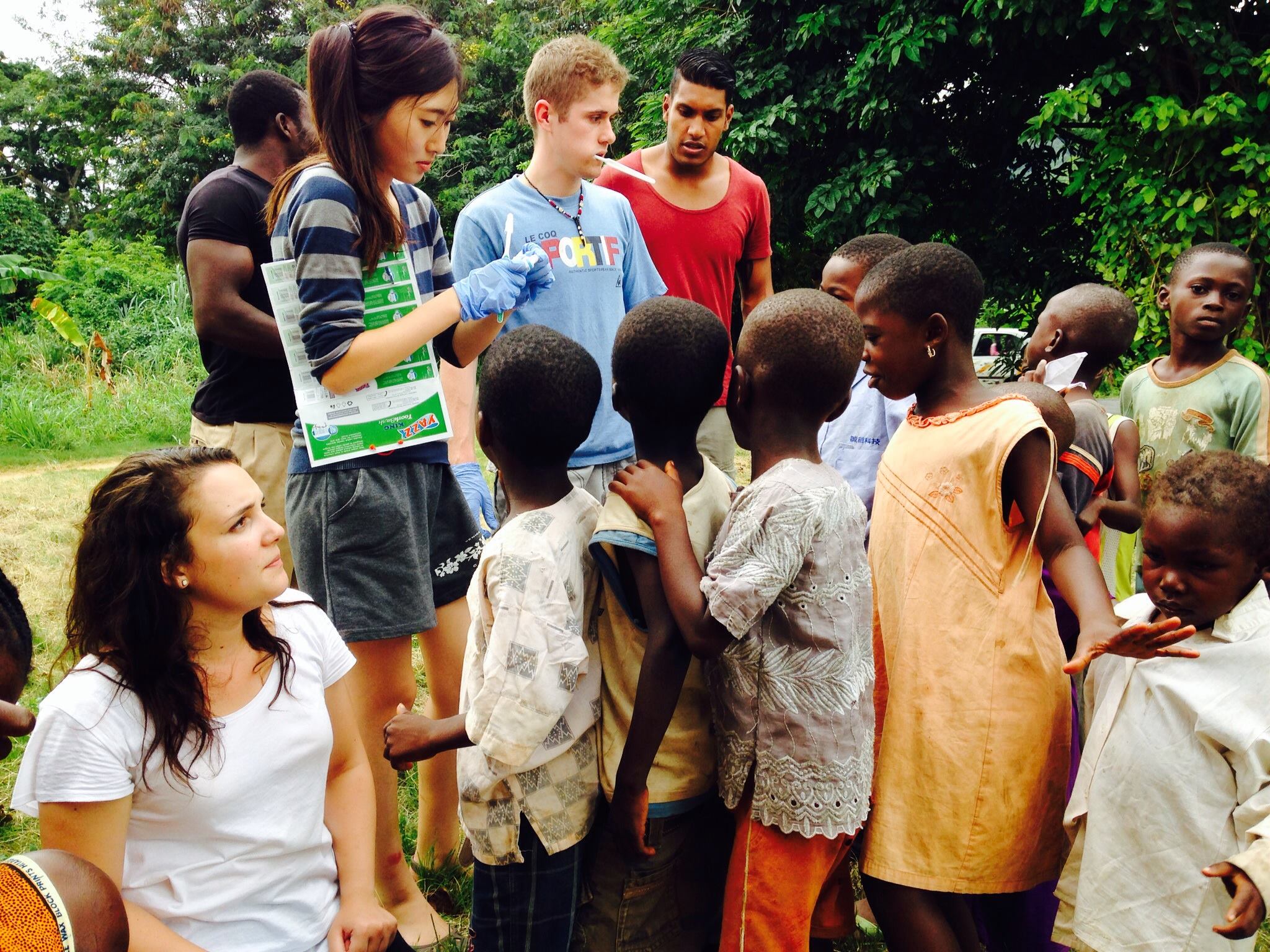
Overall, my time in Ghana was an absolutely amazing experience. I was also able to travel on the weekends to different parts of Ghana. Ghana was absolutely beautiful and the people were amazing. Everyone there made me feel welcome and was so friendly. After this incredible journey, I would definitely love to come back to Ghana and visit other parts of Africa. It’s definitely sparked a passion for traveling!
Central America
Central America consists of seven countries: Belize, Costa Rica, El Salvador, Guatemala, Honduras, Nicaragua, and Panama.
Alajuelita, Costa Rica (FIMRC)
Emily Shaffer- Alajuelita, Costa Rica
My name is Emily Shaffer and I am a senior majoring in Biochemisty/Chemistry, with a minor in Global Health. I spent five weeks completing my field experience requirement in Alajuelita, Costa Rica with the Foundation for International Medical Relief of Children (FIMRC)-- Project Alajuelita. http://www.fimrc.org/costa-rica
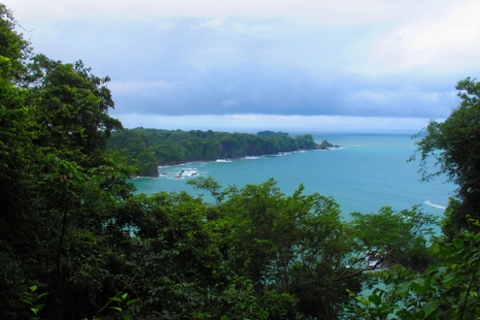
During my time in Costa Rica I worked with families living in the Alajuelita area of San Jose. There were many small neighborhoods that were some of the poorest in the country. The families coming to the clinic were almost entirely Nicaraguan, and came to the clinic seeking quality care as they can feel discriminated against among Costa Ricans. I was in the clinic 9 am-2 pm each day, and either shadowed the doctor, shadowed the psychologist, or worked the clinic. Following each appointment, the doctor and psychologist would debrief us (it was difficult to keep up in Spanish). The psychologist shared what she learned about her patients from art therapy, this was her specialization. I participated in distributing cough/cold medicines, lice shampoo, antihistamines, and anti-parasite pills. In the mornings we often took vitals such as height, weight, blood pressure, and recorded medical history.
Some trivial challenges I faced included language barriers and transportation. My proficiency increased throughout the trip as a result of immersion and Spanish class each weekday, however it still became an obstacle at times while working with patients or in experiences outside the hospital. Transportation to and from the hospital was difficult as I used the public bus system taking two buses each way, and neither of which had stops on a regular basis, so it could take anywhere from 35 minutes to an hour and a half to get to the clinic each day. Everything in the clinic was run extremely well and it was a great environment, however there were certainly challenging moments in hearing some of the stories form the patients in psychology sessions.
Beyond the clinic, Costa Rica was an absolutely amazing place to visit. Each weekend I took a trip with my roommates and host family, or fellow clinic workers. I visited beaches, volcanoes, national parks and hot springs. The diversity of the region was incredible, both biodiversity and diversity in wealth and living conditions. I would absolutely love to stay involved with FIMRC and return to this clinic and others in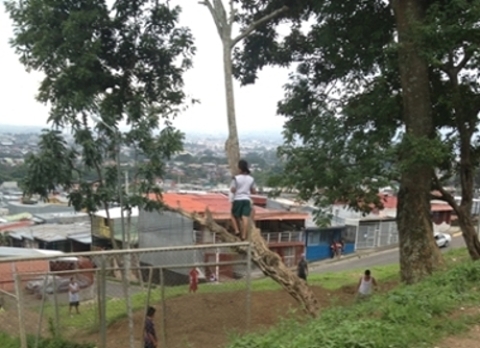 Costa Rica.
Costa Rica.Asia
Ulaanbaatar, Mongolia (Projects Abroad)
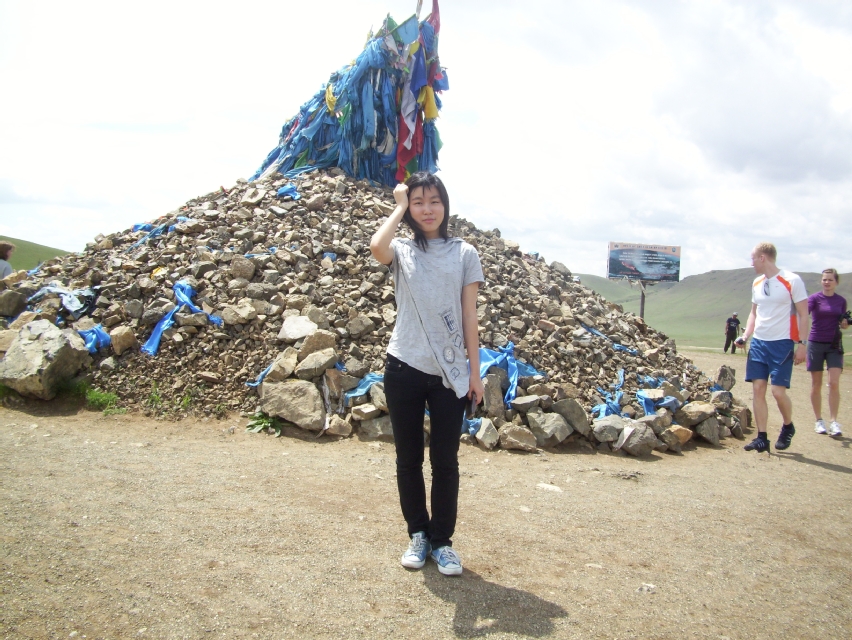 Annie Yu - Ulaanbaatar, Mongolia
Annie Yu - Ulaanbaatar, Mongolia
Annie Yu is a General Biology major (’13). She came across the Global Health minor winter quarter of 2011, when it had first became available. After taking Professor Jenkin's Global Health and Cultural Diversity, she became very interested in this minor.
Annie spent 2 months in Mongolia with Projects Abroad. She joined the medicine program and shadowed doctors at the Epidemiology Hospital of Ulaanbaatar.
Organization’s website: http://www.projects-abroad.org/
Here’s Annie sharing her experience:
I mainly shadowed Dr. Bachka at the clinical section of the Epidemiology Hospital. From 9am to 4pm, I would follow her to examine patients. The diseases I saw ranged from chicken pox to hepatitis. About once a week, I would shadow other doctors in the hospital for a day and experience other departments in the hospital, including children hepatitis, statistics, tuberculosis, and other infectious diseases. One time, I went out of the capital with doctor and nurses to visit families living in the traditional Mongolian tents, "gers," out in the grasslands. For two days, I studied at the bacteriology department and learned how to use patients' samples to culture bacteria.
Biggest problem was language problem. Although the doctors I shadowed could speak English, they were not fluent in it and at times it was hard for me to understand. Fortunately, my supervisor lent me her medical dictionary and I studied from it. Besides the environment and treatments, medical laws can be completely different in countries. Here in U.S., we believe in patient's right to learn his/her condition but in Mongolia, family members have the right to hide the patient's condition if they believe that the patient will be harmed if the patient knows.
My supervisor took me on a tour in Ulaabaatar. We went to a famous Buddhist temple, natural history museum, and a nearby shopping center. My host family took me on a vacation to visit Chingis Khann's statue and stayed at a hotel of gers out in the grassland. I was fortunate enough to be able to join in Mongolia's biggest national holiday, Naadam. Together with other students from the organization, we watched the grand opening of Naadam festival and even went to the countryside ourselves to watch the famous children horse racing contest.
I've joined the Cancer Outreach Team to improve my communication skill when interacting with strangers which I wish I could have done better when I was in Mongolia. Academically, I continue to take classes for the minor. After my experience in Mongolia, I have decided that I’d like to join Doctors without Borders.
Kathmandu, Nepal (VolNepal)
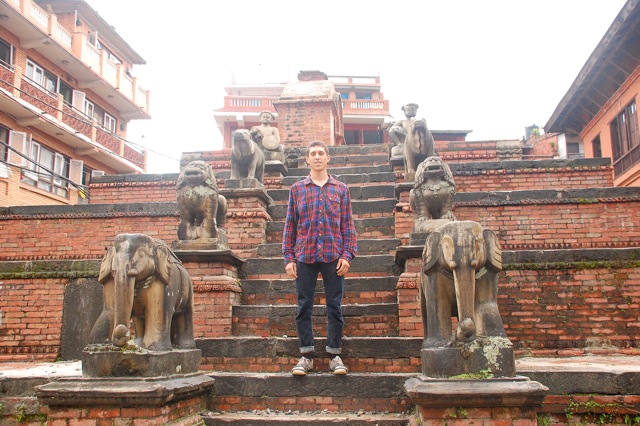
Benjamin Ostrander - Kathmandu, Nepal
Benjamin Ostrander is a Bioengineering major ( ’13 ) who volunteered in Shree Vinayak Hospital in Kathmandu, Nepal for 6 weeks on a placement with VolNepal, a Nepali organization which organizes volunteer experiences at NGO's and hospitals.
I was not given very much information about the program before I left, and was a little shocked when I first arrived. It was very unorganized and I was not assigned a mentor at the hospital. Essentially, everything was up to me. I chose how I spent my time, what I wanted to do. Usually, I would go to the hospital and shadow nurses, and occasionally doctors, for about 4 hours per day. Sometimes, there would be very little to do and I would ask the nurses questions and try to learn as much as I could. Other times, I sat down with a doctor and learned about local health problems and medical basics, such as how to take blood pressure. A number of times I was able to observe surgeries. I also gave a health lesson at three different local schools, teaching 6 to 10 different classes each day about the basics of hygiene and nutrition. Finally, I spearheaded my own public health research project, and created a questionnaire to investigate the prevalence of traditional medicine in Nepal.
I spent a lot of time traveling around the city and the country, and hanging out with other volunteers. We would usually walk into Thamel, the tourist district in Kathmandu, for a late lunch after working at the hospital in the morning. On weekends I usually traveled. One weekend I went bungee jumping, another I visited Chitwan and went on an animal safari. My final week in Nepal, I went on a short trek in the Himalayas, which was truly unforgettable. I also spent a lot of time reading, planning volunteer activities, and just walking around Kathmandu.
I learned so much during my six weeks in Nepal. The simple act if living in one of the poorest countries in the world for more than a month changes you. I am now more thankful for what I have, I am more aware of the medical challenges and health problems that many poor countries faced, and I have made some amazing friendships and memories that will last a lifetime. My field experience reinforced my career goals and I am now contemplating applying for a joint MD-MPH program so that I can be active in the field of public health in the future. I am really glad I had this experience. I am currently writing a research paper based on the data I collected about traditional medicine in Nepal, and am serving as the Co-President of an organization called the Foundation for International Medical Relief of Children. It is a student run chapter on campus that focuses on raising awareness of public health inequalities and sending volunteers into the field to make a difference.
